If you are searching for the best affordable Bachelor’s in Turf and Turfgrass Management degrees, you have come to the right place. A growing number of colleges and universities across the country are offering high-quality academic programs designed for aspiring turfgrass managers. Although curriculum requirements vary, students following this educational path will typically develop their knowledge and skills regarding the maintenance, quality, performance and production of turfgrass in a number of environments, including recreation areas, cemeteries, athletic fields, parks, farms, golf courses and both commercial and residential landscapes. To learn more about this unique, exciting profession and the degree programs that can get you to your career goals, read on for the top 25 best affordable Bachelor’s in Turf and Turfgrass Management degrees.
Methodology
In order to provide you with the most comprehensive list of the top 25 best affordable Bachelor’s in Turf and Turfgrass Management, we scored schools based on three core metrics related to class size, student success and affordability as outlined below. Regardless of the specific occupation you would like to pursue once you have earned your bachelor’s degree in turf and turfgrass management, there are many low-cost, high-quality programs offered throughout the U.S. To help you narrow down your options, we first conducted a search for the turf and turfgrass management bachelor’s degrees using the College Navigator tool at the National Center for Education Statistics (NCES). Since our search yielded 25 colleges and universities, we did not need to narrow down our list any further. We also double-checked the information provided by the NCES with each school’s website to ensure our data was as current as possible.
Average Cost of Attendance
As you begin to think about the school you would like to attend for your Bachelor’s in Turf and Turfgrass Management, it goes without saying that tuition will play a significant role in making your decision. Although you might immediately gravitate towards institutions with the lowest programs on our list simply for the sake of saving money, it is also important to consider tuition in relation to the program’s academic offerings, including quality, concentrations or specializations and opportunities for internships, practical learning and extracurriculars. For this ranking, we awarded points for tuition using figures provided by the NCES based on how much an in-state student is expected to pay for one full year of academic study. We also provided costs for out-of-state students for your reference only.
Points:
Under $7,500: 5 points
$7,500 to $15,000: 3 points
$15,001 and above: 1 point
Student-to-Faculty Ratio
We then looked at each school’s student-to-faculty ratio to get a better idea of the learning environment at the following institutions. Although some students might not have a preference for learning in a large or small class setting, others may base their decision on it. For instance, large universities might offer more choices for concentrations and internships but report a larger class size, while small colleges may provide better opportunities for mentoring and personal relationships between students and professors due to their small class sizes. While it comes down to personal preference and learning style, we awarded the most points to colleges and universities that reported the lowest student-to-faculty ratios as outlined below.
Points:
10:1 or less: 3 points
11:1 to 15:1: 2 points
Greater than 15:1: 1 point
Graduation Rate
Finally, we used graduation rates from NCES to evaluate the success of students at each school below. In other words, colleges and universities with high graduation rates are maintaining their student enrollment and producing graduates which is, ultimately, the goal. On the other hand, schools with low graduation rates might be falling short in one area or another, resulting in students leaving and finishing their degrees elsewhere. While this is not always the case and there are always exceptions, possible reasons for low graduation rates include poor academic quality, a lack of support for students, inexperienced faculty members and/or unaffordable programs. As a result, we awarded the most points to colleges and universities that reported the highest graduation rates and, therefore, the highest levels of student satisfaction and success.
Points
More than 50 percent: 3 points
Between 30 percent and 50 percent: 2 points
Less than 30 percent: 1 point
Frequently Asked Questions:
- What are the Career Options for a Bachelor’s in Turf and Turfgrass Management Degree?
- What is the Salary Potential for a Turf and Turfgrass Management Degree?
- What Will You Study in a Turf and Turfgrass Management Degree Program??
SUMMARY RANKING OF TOP 10 Best Affordable TURF AND TURFGRASS MANAGEMENT Degree Programs:
- University of Florida
- New Mexico State University
- North Carolina State University
- Purdue University
- University of Maine
- Washington State University
- Michigan State University
- Abraham Baldwin Agricultural College
- Tennessee Technological University
- University of Nebraska-Lincoln
Ranking Top 25 Best Affordable Bachelor’s in Turf and Turfgrass Management Degrees
25. University of Massachusetts – Amherst
Amherst, Massachusetts

Points: 5
Program Website
Established in 1863 as Massachusetts Agricultural College, the University of Massachusetts is a public land-grant and research university as well as the flagship campus of the University of Massachusetts System. UMass Amherst’s School of Earth and Sustainability offers a low-cost Bachelor of Science in Turfgrass Science and Management that provides invaluable technical and career training focused on the maintenance and production of grassed areas, including parks, home lawns, golf courses and other athletic fields. Areas of study include pest control, turfgrass culture and physiology, seed and grass identification, basic soil and plant science principles, facility management and sustainable turfgrass management practices, accounting and business management. The curriculum also includes an internship requirement, and graduates report a 100 percent job placement rate after earning their degree. A turf management associate’s degree is also available at UMASS.
Degree Options:
Turfgrass Science & Management (AS, BS)
In-State Tuition: $15,887
Out-of-State Tuition: $15,887
Student-to-Faculty Ratio: 17:1
Graduation Rate: 80 percent
24. Clemson University
Clemson, South Carolina

Points: 5
Program Website
Clemson University is a public, land-grant research university and a top choice for students seeking an affordable turf and turfgrass management degree. Established in 1889 as Clemson Agricultural College of South Carolina, Clemson University offers an inexpensive Bachelor of Science in Turfgrass that focuses on the business, management, technology and science beyond the grass. The curriculum is comprised of topics in management, communication, soils, chemistry and biology as well as coursework in business, mathematics and science. This economical program also allows students to tailor their studies toward their particular interest area or objective through preapproved classes in plant breeding, microbiology, draining and irrigation, water and soil conservation, environmental sciences, landscape plans and plant pathology.
Degree Options:
Turfgrass (B.S.)
In-State Tuition: $15,374
Out-of-State Tuition: $37,128
Student-to-Faculty Ratio: 16:1
Graduation Rate: 83 percent
23. Delaware Valley University
Doylestown, Pennsylvania

Points: 6
Founded in 1896, Delaware Valley University is a private institution of higher education and one of the most affordable universities for a turf and turfgrass management degree. At DVU, undergraduates may pursue a top Bachelor of Science in Turf Management that features small classes, hands-on learning and a nearly 100 percent job placement rate after graduation. The curriculum includes studies in sustainability, topographical surveying and geographic information science, soil fertility and fertilizers, turf management and watershed management as well as botany, turf cultural systems and plant physiology. An internship is also required. Outside of the classroom, DVU’s facilities include acres of lawn turf, athletic fields, a putting green and a turf research center. Students may also join the student-run Turf Club, which attends conferences, hosts speakers and takes trips.
Degree Options:
Turf Management (B.S.)
In-State Tuition: $39,440
Out-of-State Tuition: $39,440
Student-to-Faculty Ratio: 13:1
Graduation Rate: 53 percent
22. Pennsylvania State University
University Park, Pennsylvania
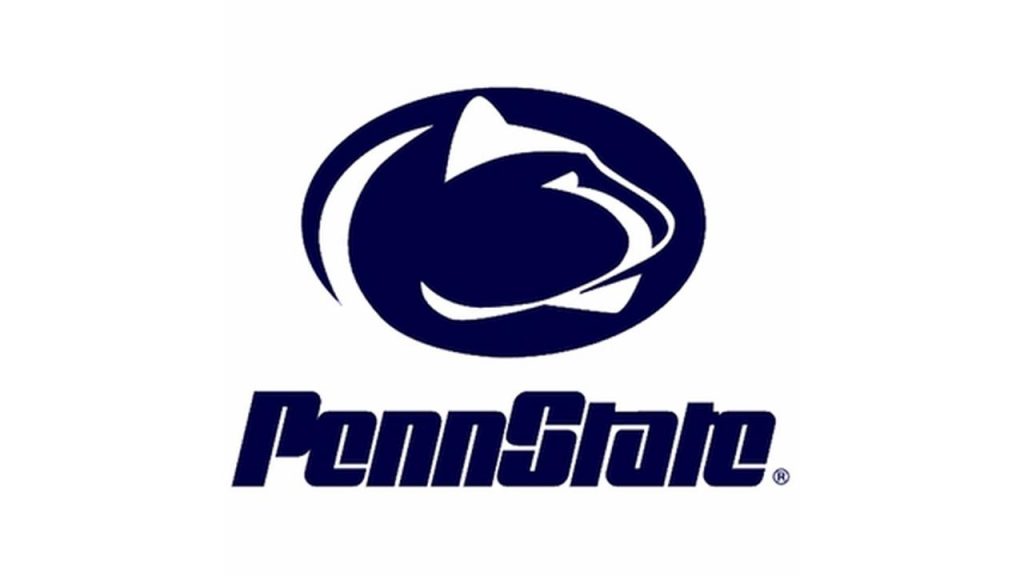
Points: 6
Program Website
Pennsylvania State University is a space-, sea- and land-grant university and the flagship campus of the Pennsylvania State University System. Founded as the Farmers’ High School of Pennsylvania in 1855, PSU launched one of the first turfgrass programs in the U.S. in 1929. PSU’s low-cost 120-credit-hour Bachelor of Science in Turfgrass Science covers topics such as plant nutrition and fertility, genetics, turfgrass breeding and pesticides as well as water quality and soil science. The program also sharpens students’ skills in areas such as basic and applied sciences, communications and business management. Students of this bachelor’s in turfgrass science may use the credits they earn in the program toward the Golf Course Superintendents Association of America certification exam.
Degree Options:
Bachelor of Science in Turfgrass Science
In-State Tuition: $18,454
Out-of-State Tuition: $34,858
Student-to-Faculty Ratio: 14:1
Graduation Rate: 85 percent
21. Rutgers University
New Brunswick, New Jersey

Points: 6
Program Website
An affordable, accredited university for a turf and turfgrass management degree, Rutgers University is a public research university and the largest institution of higher learning in the state. The Rutgers Center for Turfgrass Science confers a four-year undergraduate pathway leading to an inexpensive Bachelor of Science in Plant Biology with a turfgrass management option. Topics of study include plant pathology and physiology, plant breeding and either agricultural entomology and pest management or weeds, diseases and insects. In addition to completing a comprehensive curriculum, students also have opportunities to conduct extensive turfgrass research. Students of this economical bachelor’s in turfgrass management learn from a team with experience in many disciplines, including molecular biology, soil science, weed science, entomology, pathology, physiology management and turfgrass breeding.
Degree Options:
Bachelor of Science in Plant Biology With an Option in Turfgrass Management
In-State Tuition: $14,974
Out-of-State Tuition: $31,282
Student-to-Faculty Ratio: 16:1
Graduation Rate: 80 percent
20. Texas A&M University
College Station, Texas
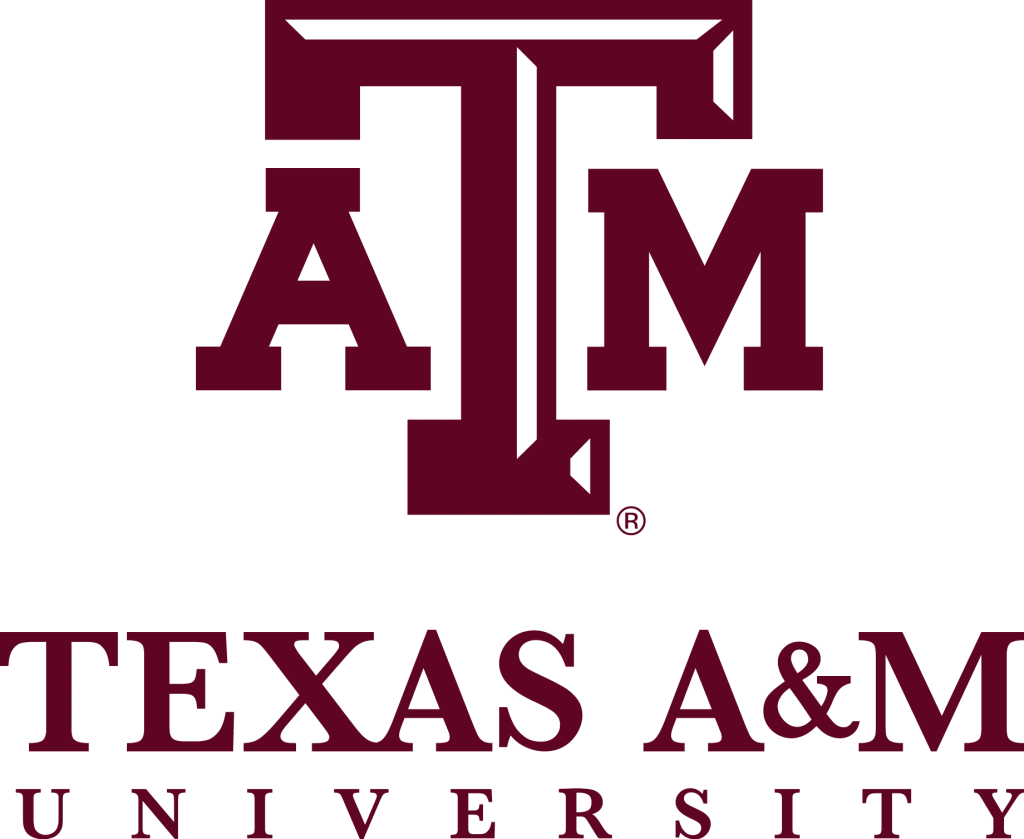
Points: 6
Program Website
Established in 1871 as the Agricultural and Mechanical College of Texas, Texas A&M University is a public space-, sea- and land-grant university and the largest institution of higher learning by enrollment in the state. The school confers a top-value Bachelor of Science in Turfgrass Science that develops students’ knowledge of fundamental resources, including water, soils and turfgrass, as well as how these resources interact in various environmental settings. Required courses build a foundation, while students may select electives such as landscape architecture, business, plant protection and ornamental horticulture to meet their own objectives, needs and interests. Graduates of this cheap bachelor’s in turfgrass science in Texas are prepared for careers in education, agribusiness, production agriculture and management.
Degree Options:
Turgrass Science – BS
In-State Tuition: $8,748
Out-of-State Tuition: $21,198
Student-to-Faculty Ratio: 21:1
Graduation Rate: 40 percent
19. University of Tennessee
Knoxville, tennessee

Points: 6
Program Website
Founded in 1794 as Blount College, the University of Tennessee is the flagship campus of the University of Tennessee System and a top choice for students seeking an affordable turf and turfgrass management degree. UT provides a high-value Bachelor of Science in Plant Sciences with a concentration in Turfgrass Science and Management. This program combines the study of pests, water, soils and grasses and is designed for students pursuing careers in commercial turf, athletic field and golf course management. Students at this top university may develop a personalized course of study by choosing classes according to their interests and goals, including topis in plant pathology, nematology and entomology, water and soil sciences and environmental horticulture.
Degree Options:
Bachelor of Science in Plant Sciences: Turfgrass Science and Management Concentration
In-State Tuition: $8,664
Out-of-State Tuition: $24,782
Student-to-Faculty Ratio: 19:1
Graduation Rate: 48 percent
18. SUNY Cobleskill
Cobleskill, New York

Points: 6
Program Website
The State University of New York (SUNY) College of Agriculture and Technology at Cobleskill, also known simply as SUNY Cobleskill, is a public college that began in 1911 as the Schoharie State School of Agriculture. A known leader in agriculture and technology degrees, SUNY Cobleskill confers two high-value programs: a Bachelor of Technology in Golf Turf and a Bachelor of Technology in Sports Turf. Both cost-effective degrees consists of 120 credit hours to be completed in four years, including a 12-credit professional internship, and stress the practices and principles for maintaining and establishing golf and sports in an environmentally sound way.
Degree Options:
Golf Turf, Bachelor of Technology (BT)
Sports Turf, Bachelor of Technology (BT)
In-State Tuition: $8,654
Out-of-State Tuition: $18,434
Student-to-Faculty Ratio: 16:1
Graduation Rate: 40 percent
17. University of Minnesota
St. Paul, Minnesota

Points: 7
Program Website
Established in 1851, the University of Minnesota is a public research university and both the largest and oldest campus in the University of Minnesota System. UM’s College of Food, Agricultural and Natural Resource Sciences confers an inexpensive Bachelor of Science in Plant Science with a track in turfgrass science that combines a broad course of study in plant sciences with a more specialized focus on plant physiology and the management of golf courses, athletic fields, parks and home lawns. The curriculum from this top-value bachelor’s program delves into critical areas of the discipline, including plant nutrients and the environment, plant pathology, turfgrass science and management, and the management, ecology and biology of invasive plants.
Degree Options:
Plant Science B.S.
In-State Tuition: $14,760
Out-of-State Tuition: $30,438
Student-to-Faculty Ratio: 17:1
Graduation Rate: 80 percent
16. University of Georgia
Athens, Georgia
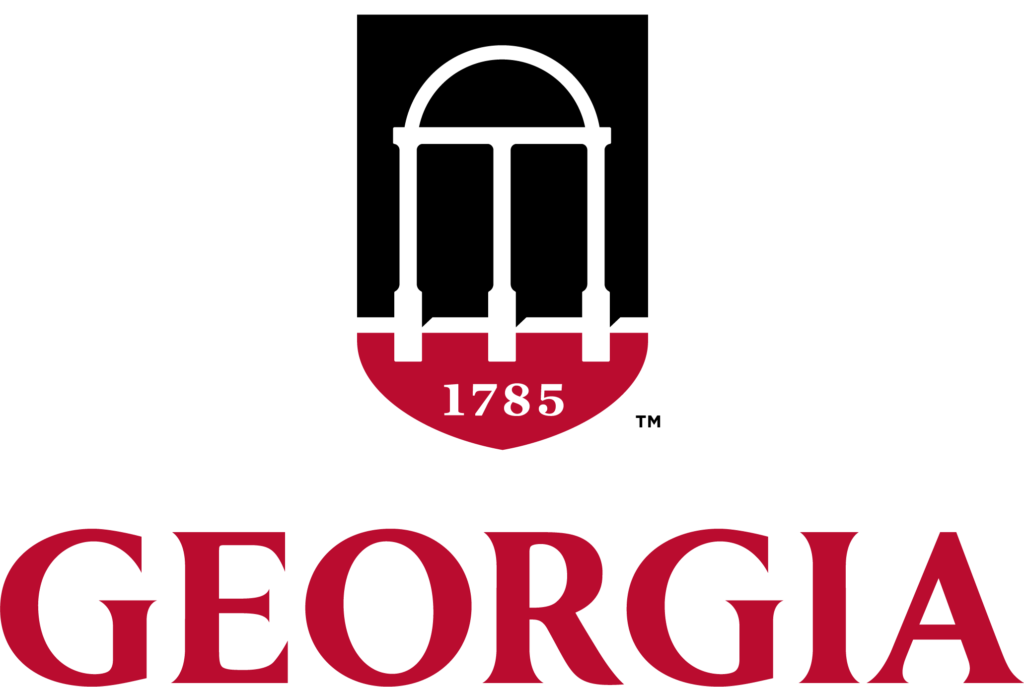
Points: 7
Program Website
Students seeking an affordable degree in turf and turfgrass management may consider attending the University of Georgia, a research university and one of the oldest public institutions of higher education in the U.S. Established in 1785, UGA provides a top-value turfgrass management major that focuses on all areas of soil and plant science. The program places a particular emphasis on teaching students environmentally sound strategies for controlling diseases, insects, weeds and other common turfgrass pests. The curriculum is comprised of a careful balance of basic and applied sciences with courses in accounting, business management and economics. Students of this top turf management major benefit from participating in organizations and clubs, laboratories in the field and the classroom, undergraduate research opportunities and internships with sod producers, lawn maintenance contractors, turf sales companies, athletic departments and golf courses.
Degree Options:
Turfgrass Management Major
In-State Tuition: $11,830
Out-of-State Tuition: $30,404
Student-to-Faculty Ratio: 17:1
Graduation Rate: 86 percent
15. Colorado State University
Fort Collins, Colorado

Points: 7
Program Website
Undergraduates seeking an economical turf and turfgrass management degree may consider attending Colorado State University, a public research university and the flagship institution of the Colorado State University System. At CSU, the major in environmental horticulture with a turf management concentration prepares graduates for management opportunities ranging from the maintenance and establishment of public and private grounds to sod production. The curriculum allows students to build a foundation in the maintenance and production of functional and ornamental turfgrass areas with supplemental courses in landscape and nursery management, soil and plant science, irrigation design and business management. An internship is required for graduation for this low-cost major in environmental horticulture with a turn management concentration .
Degree Options:
Major in Environmental Horticulture, Turf Management Concentration
In-State Tuition: $11,707
Out-of-State Tuition: $29,608
Student-to-Faculty Ratio: 16:1
Graduation Rate: 71 percent
14. Ohio State University
Columbus, Ohio

Points: 7
Program Website
Ohio State University is a public research university that was founded in 1870 as the Ohio Agricultural and Mechanical College. OSU confers a best-value turf and turfgrass management degree in the form of a Bachelor of Science in Sustainable Plant Systems. This discipline is broken down into five specialization areas: turfgrass science, plant biosciences, horticulture, agronomy and agroecology. Undergraduates of this economical university are encouraged to participate in research projects with faculty and present their work at university- and college-level forums, and all students must complete an internship to earn their degree. Outside of the classroom, OSU is home to a number of student organizations, including the Turf Club, OSU Weed Science Judging Team and the OSU Crops and Soils Club.
Degree Options:
BS in Sustainable Plant Systems
In-State Tuition: $10,726
Out-of-State Tuition: $30,742
Student-to-Faculty Ratio: 19:1
Graduation Rate: 84 percent
13. University of Maryland
College Park, Maryland

Points: 7
Program Website
Founded as Maryland Agricultural College in 1856, the University of Maryland is the flagship campus of the University System of Maryland and the largest university by enrollment in both the Washington metropolitan area and the state. UMD offers a best-value turf and turfgrass management degree in the form of a Bachelor of Science in Plant Science with an emphasis in turf and golf course management. This top program is dedicated to researching and advancing integrated pest management strategies that reduce pesticide, fertilizer and water inputs while promoting environmentally beneficial and healthy turfgrass stands. The curriculum also stresses the impact of turfgrass management on the environment and the use of new technologies in turfgrass management.
Degree Options:
B.S. in Plant Science: Turf and Golf Course Management
In-State Tuition: $10,595
Out-of-State Tuition: $35,216
Student-to-Faculty Ratio: 18:1
Graduation Rate: 86 percent
12. Kansas State University
Manhattan, Kansas
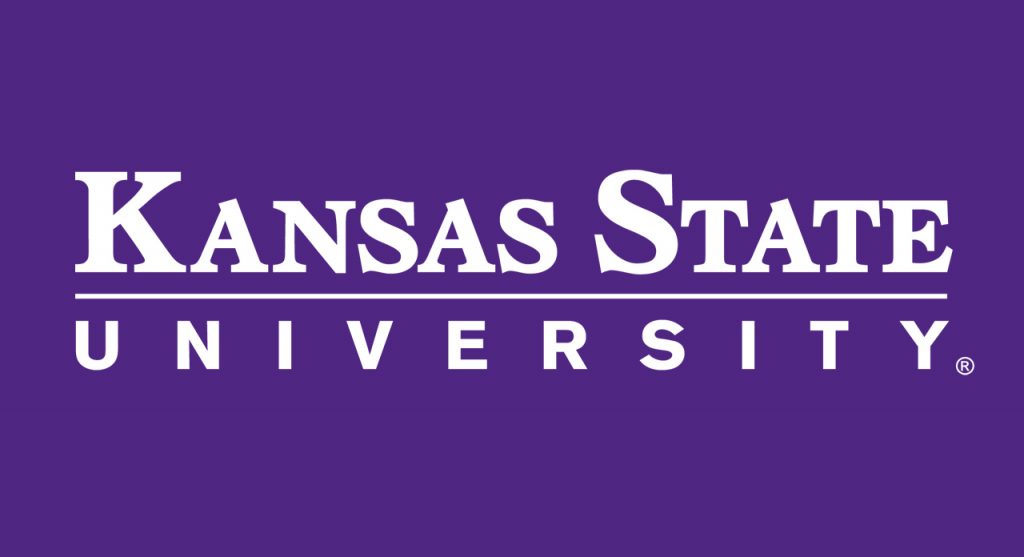
Featured Programs
Points: 7
Program Website
A top choice for a best-value turf and turfgrass management degree, Kansas State University is a public land- and space-grant institution of higher learning and the flagship campus of the four-school Kansas State University System. Established in 1863, KSU offers a cost-effective program in horticulture with a golf course and sports turf operations specialization that prepares undergraduates for careers as turf managers and golf course managers and superintendents. The unique curriculum features a combination of courses in hospitality, business, turfgrass management and communications as well as two internships. Areas of study within the specialization include turfgrass weeds and diseases and their management, soils, turfgrass culture, horticulture irrigation systems and pest management.
Degree Options:
Gof Course & Sports Turf Operations Specialization
In-State Tuition: $10,383
Out-of-State Tuition: $25,887
Student-to-Faculty Ratio: 18:1
Graduation Rate: 64 percent
11. North Dakota State University
Fargo, North Dakota

Points: 7
Program Website
North Dakota State University, officially the North Dakota State University of Agriculture and Applied Sciences, is a public research university and the flagship campus of the North Dakota State University System. Established in 1890, NDSU offers a low-cost Sports and Urban Turfgrass Management (SUTM) option within a 120-credit horticulture major that is focused on the unique and particular needs of the green industry. The four-year curriculum requires students to complete at least one internship experience and includes coursework in soil fertility and fertilizers, landscape plant pathology, sports turf operations, turfgrass management and landscape irrigation design, installation and management.
Degree Options:
Sports and Urban Turfgrass Management Option
In-State Tuition: $9,414
Out-of-State Tuition: $13,393
Student-to-Faculty Ratio: 19:1
Graduation Rate: 58 percent
10. University of Nebraska-Lincoln
Lincoln, Nebraska

Points: 7
Program Website
The University of Nebraska-Lincoln is a public research institution of higher education as well as the largest campus in the University of Nebraska System and the oldest university in the state. UNL offers an affordable undergraduate program in the form of a Bachelor of Science in Turfgrass and Landscape Management that provides students with a balanced education. This top profram is focused on environmental concerns, sustainability, biology and function and both landscape plant and turfgrass management as well as courses in the humanities, sciences and mathematics. UNL students may select either a landscape management option or a turfgrass management option depending on their specific career goals.
Degree Options:
BS in Turfgrass & Landscape Management
In-State Tuition: $9,242
Out-of-State Tuition: $25,038
Student-to-Faculty Ratio: 18:1
Graduation Rate: 69 percent
9. Tennessee Technological University
Cookeville, Tennessee
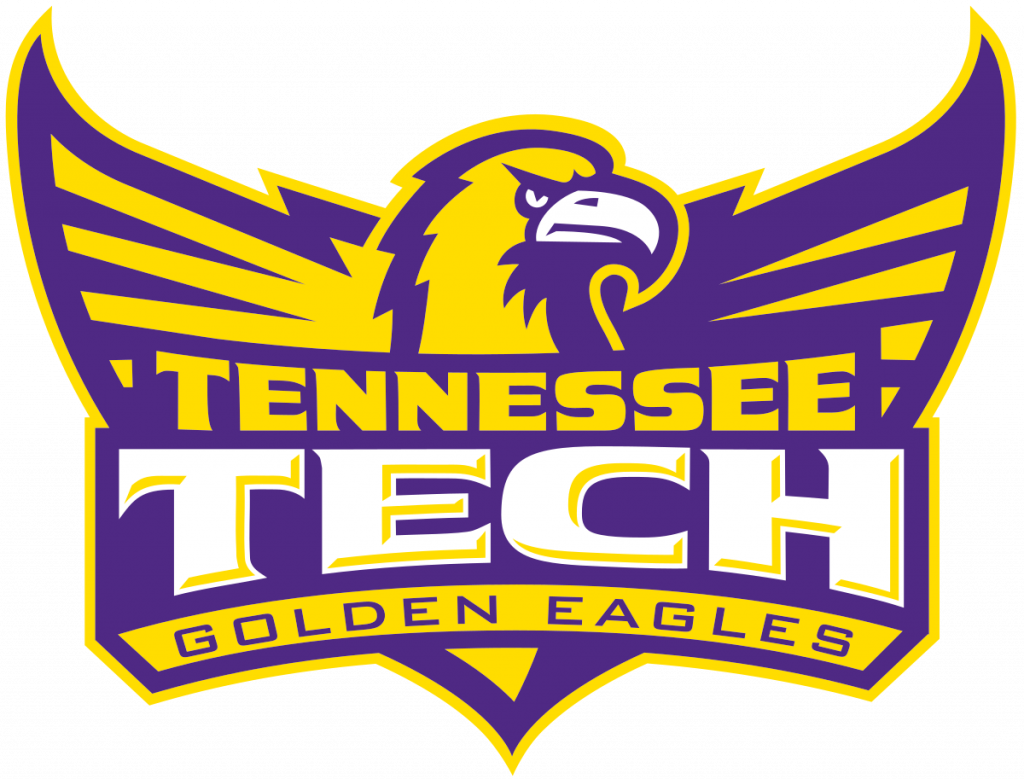
Points: 7
Program Website
Established in 1909 as the University of Dixie, Tennessee Technological University is a public university known for its agriculture degrees. Tennessee Tech confers an affordable Bachelor of Science in Agriculture with a turfgrass management concentration that prepares graduates for careers involving the management of home lawns, golf courses, athletic turf and other types of industrial, municipal and residential turf. In addition to completing a comprehensive curriculum with courses in turfgrass management, agricultural finance, landscape plant materials, soils, pest management, entomology and agribusiness management, students must participate in one internship before graduation. Undergraduates of this cheap bachelor’s in turfgrass management are also encouraged to gain hands-on experience at the Tech Farm or on-campus with the Grounds Crew.
Degree Options:
Agriculture, Turfgrass Management Concentration, B.S.
In-State Tuition: $8,731
Out-of-State Tuition: $24,595
Student-to-Faculty Ratio: 18:1
Graduation Rate: 55 percent
8. Abraham Baldwin Agricultural College
Tifton, Georgia
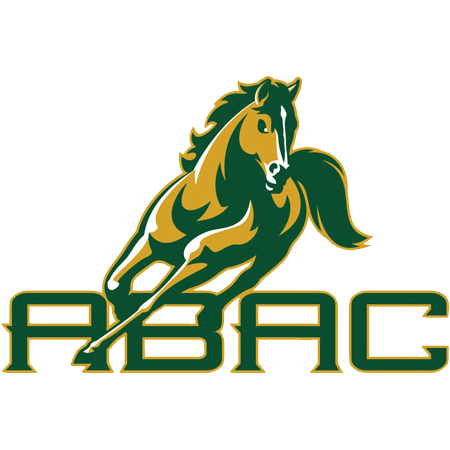
Points: 7
Program Website
Established in 1908, Abraham Baldwin Agricultural College is a member of the University System of Georgia and, with the cheapest tuition on our list, one of the most affordable colleges for a turf and turfgrass management degree. ABAC confers the top-value Bachelor of Science in Environmental Horticulture with a turfgrass science track that prepares graduates for master’s-level study as well as for careers in grounds management, turf production, professional lawn care, sports turf and golf turf. Areas of focus within the specialization track include golf course design and management, turf and ornamental pest management, turfgrass science and technology, soils and fertilizers, power equipment and grounds irrigation systems.
Degree Options:
Environmental Horticulture, Turfgrass Science Track, B.S.
In-State Tuition: $3,503
Out-of-State Tuition: $10,241
Student-to-Faculty Ratio: 18:1
Graduation Rate: 22 percent
7. Michigan State University
East Lansing, Michigan

Points: 8
Program Website
Founded in 1855, Michigan State University was initially known as the Agricultural College of the State of Michigan, one of the first institutions of higher learning in the U.S. to teach scientific agriculture. Today, MSU offers a low-cost Bachelor of Science in Crop and Soil Sciences with a turfgrass management concentration designed to prepare students for careers in urban agriculture. Areas of study include turfgrass pathology, entomology, physiology, soil fertility and management as well as pesticides and fertilizers, golf turf irrigation and soil resources, physics, biology and chemistry. Graduates of this cost-effective bachelor’s with a turfgrass management concentration have the skills and knowledge required to work in industries involved with park and grounds maintenance, golf courses, athletic fields and lawn management.
Degree Options:
Crop and Soil Sciences (B.S.)
In-State Tuition: $14,460
Out-of-State Tuition: $39,766
Student-to-Faculty Ratio: 16:1
Graduation Rate: 80 percent
6. Washington State University
Pullman, Washington

Points: 8
Program Website
Washington State University is a public research university and one of the oldest land-grant universities in the West. WSU’s College of Agricultural, Human and Natural Resource Sciences offers the only four-year turfgrass management major in Washington State, first provided in 1955. The school’s Bachelor of Science in Integrated Plant Sciences with a focus on turfgrass management is designed for students interested in sod production, grounds maintenance, golf course supervision and other positions involving personnel relations and turfgrass management techniques. In addition to completing coursework in pest management, plant pathology, irrigation systems and water management, soil fertility and turfgrass management, students of this low-cost degree program may consider joining the WSU Turfgrass Management Club for additional hands-on experience.
Degree Options:
Bachelor of Science in Integrated Plant Sciences
In-State Tuition: $11,584
Out-of-State Tuition: $25,820
Student-to-Faculty Ratio: 15:1
Graduation Rate: 59 percent
5. University of Maine
Orono, Maine

Points: 8
Program Website
Established in 1865, the University of Maine is the flagship campus of the University of Maine System and a top choice for students seeking an affordable Bachelor’s in Turf and Turfgrass Management. This low-cost Bachelor of Science in Environmental Horticulture with a concentration in Turfgrass Management is the first and only program in the Northeast that is offered through two schools: UMaine and the University of Massachusetts. Students of this top bachelor’s in turfgrass management complete courses in soil and plant science, business management and horticulture at UMaine while taking classes in turfgrass management at UMass. Outside of the classroom, students benefit from on-campus, hands-on learning resources such as the Lyle E. Littlefield Gardens, the Roger Clapp Greenhouses, the UMaine Horticulture Club, Turf Club and the Bangor Garden show held in nearby Bangor.
Degree Options:
Bachelor’s Degree in Environmental Horticulture, Turfgrass Management
In-State Tuition: $11,170
Out-of-State Tuition: $30,970
Student-to-Faculty Ratio: 15:1
Graduation Rate: 60 percent
4. Purdue University
West Lafayette, Indiana
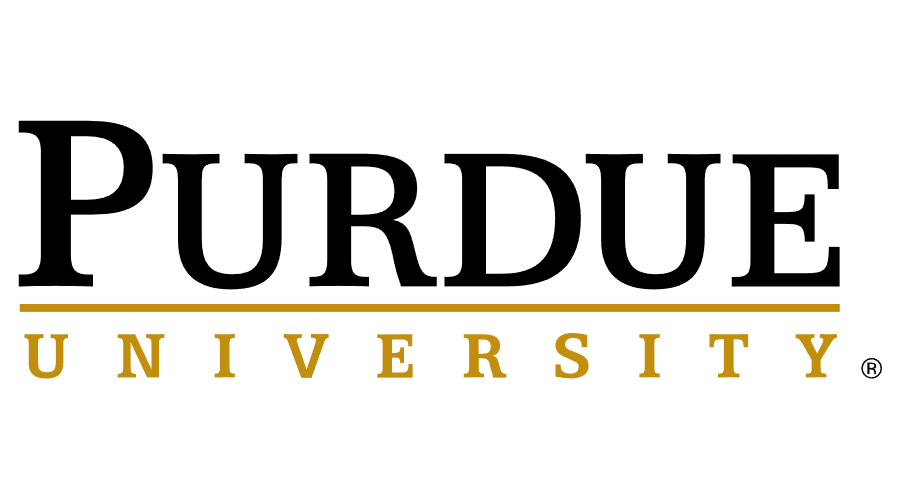
Points: 8
Program Website
Purdue University is a public land-, sea- and space-grant institution of higher learning and the flagship campus of the Purdue University System. Purdue’s inexpensive Bachelor of Science in Turf Management and Science consists of 120 credits of study and combines business and management coursework, technical agronomic information, basic scientific principles and problem-solving and written/oral communication skills to prepare graduates for careers in this dynamic industry. Through the curriculum, students at this best-value university learn to implement and oversee programs for the performance, maintenance and production of various turfgrass areas such as sod farms, parks, athletic fields, lawns and golf courses.
Degree Options:
Turf Management and Science, BS
In-State Tuition: $9,992
Out-of-State Tuition: $28,794
Student-to-Faculty Ratio: 13:1
Graduation Rate: 81 percent
3. North Carolina State University
Raleigh, North Carolina
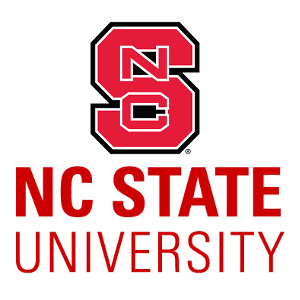
Points: 8
Program Website
A public research university and a member of the University of North Carolina System, North Carolina State University is also a space-, sea- and land-grant institution and one of the most affordable universities for a turf and turfgrass management degree. NCSU offers a top-ranked Bachelor of Science in Turfgrass Science that prepares students for careers in agribusiness management and sales, recreational park turf management, sod production, industrial and home lawn businesses and both athletic field and golf course management. The 120-hour curriculum for this low-cost bachelor’s in turfgrass science includes coursework in plant pathology and physiology, turf cultural systems, soil fertility and nutrient management, environmental issues in turf management, landscape ecosystem management and advanced turf pest management.
Degree Options:
Bachelor of Science in Turfgrass Science
In-State Tuition: $9,101
Out-of-State Tuition: $28,444
Student-to-Faculty Ratio: 14:1
Graduation Rate: 81 percent
2. New Mexico State University
Las Cruces, New Mexico
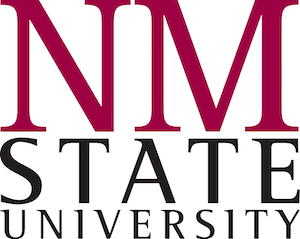
Points: 8
Program Website
Established in 1888, New Mexico State University is one of two flagship universities in the state and the oldest public institution of higher learning in New Mexico. Students pursuing NMSU’s Bachelor of Science in Agriculture with a major in Turfgrass Management can choose from four specialization options: turfgrass science, turfgrass business, turfgrass golf course and turfgrass athletic field. All majors are required to complete a specific set of course courses as well as two internships with a lawn care operator, athletic field, parks department, golf course or another turfgrass segment. Outside of the classroom, students of this best-value bachelor’s degree may also consider joining the Turf Club to gain additional career direction.
Degree Options:
Bachelor of Science in Agriculture, Major: Turfgrass Management
In-State Tuition: $6,686
Out-of-State Tuition: $21,770
Student-to-Faculty Ratio: 17:1
Graduation Rate: 47 percent
1. University of Florida
Gainesville, Florida

Points: 9
Program Website
Topping our list of the best affordable universities for a turf and turfgrass management degree, the University of Florida is a public space-, sea- and land-grant research university and a senior member of the State System of Florida. Established in 1853, UF offers two best degrees: a Bachelor of Arts and a Bachelor of Science in Plant Science. Within these programs, students may choose to specialize in turfgrass science and combine the study of water, soils, grasses and pests affecting turf with the study of management and business. Career options for graduates of this cheap turf management program include work with government agencies, sod farms, environmental consulting firms, parks, lawn care companies, sports turf facilities and agrichemical industries.
Degree Options:
Bachelor of Arts in Plant Science
Bachelor of Science in Plant Science
In-State Tuition: $6,381
Out-of-State Tuition: $28,659
Student-to-Faculty Ratio: 18:1
Graduation Rate: 90 percent
Frequently Asked Questions
What are the Career Options for a Bachelor’s in Turf and Turfgrass Management Degree?
While it might seem like everyone else is competing for positions in top finance or engineering degree programs, an increasing number of students are considering pursuing a bachelor’s degree in turf and turfgrass management at some of the country’s top colleges and universities. An undergraduate turf and turfgrass management degree opens up a number of doors in terms of popular career options, including sports field manager, landscaping crew supervisor, lawn care specialist, turf scout and landscape operations manager. Some of the most popular occupations in this discipline include:
- Grounds Maintenance Worker or Supervisor
- Tree Trimmer or Pruner
- Golf Course Superintendent
- Pesticide Technician
Grounds maintenance workers and supervisors are responsible for overseeing the sowing of sod, shrubs, trees and decorative plants for private residences and business. They may also work with counties and cities for the purposing of maintaining public parks. Similarly, golf course superintendents are responsible for all aspects of the maintenance and operation of golf courses. Their daily duties include overseeing people, controlling budgets, managing property assets and both installing and maintaining the turf. Pesticide technicians control the effects of insects and weeds on plants by applying herbicides. They may also be tasked with using soil fertilizers to promote plant health and growth.
Some students may also consider using their bachelor’s degree in turf and turfgrass management as educational credits to become a certified golf course superintendent through the Golf Course Superintendents Association of America. After a number of years of experience within the discipline, turf science graduates may wish to begin their own tree trimming or lawn care maintenance businesses.
What is the Salary Potential for a Turf and Turfgrass Management Degree?
Although the discipline of turfgrass management is fairly specialized compared to other broader fields such as psychology in which there are many different areas of focus, the salary potential for graduates with a turfgrass management degree will vary depending on a number of factors: specific position, employer, level of experience, education and any certifications obtained. To learn more about how much one can earn in this field, we consulted the U.S. Bureau of Labor Statistics (BLS) for data.
According to the BLS, grounds maintenance workers earned $14.13 per hour, or $29,400 per year, as of May 2018. The top 10 percent earned more than $22.35 per hour, while the lowest 10 percent earned less than $10.03. Top-paying industries for grounds maintenance workers include state, local and private educational services, the government, services to dwelling and businesses and the recreation, gambling and amusement industries.
The BLS also indicates that tree trimmers and pruners earned an average hourly wage of $19,47, or $40,510 per year, as of May 2018. The highest 10 percent brought home more than $29.48 per hour, while the lowest 10 percent saw less than $11.70 per hour. Top-paying industries for this occupation include real estate, federal and local governments, management of companies and enterprises and universities, colleges and professional schools.
Finally, the BLS reports that pesticide handlers, sprayers and applicators for vegetation earned a mean hourly wage of $18.37, or $38,210 annually, as of May 2018. The highest 10 percent earned hourly wages of $27.10, while the lowest 10 percent brought home $11.49 per hour. Similar to tree trimmers and pruners, top-paying industries for professionals in this occupation include state and local governments and elementary, secondary postsecondary and professional schools as well as assisted living facilities for the elderly and continuing care retirement communities.
What Will You Study in a Turf and Turfgrass Management Degree Program?
Although a lesser-known occupation, the academic discipline of turfgrass science is not new. In fact, the demand for students trained in turf and turfgrass management, including sports field design, weed control, irrigation, pest control and soil science remains steady. Due to the career-oriented nature of this field, many Bachelor’s in Turf and Turfgrass Management degree programs include hands-on learning experiences such as internships in parks, country club-style golf courses and sporting fields. Depending on the curriculum requirements, most bachelor’s degrees in turf and turfgrass management are designed to be completed within four years of full-time enrollment. However, those wishing to enter the industry sooner may find a two-year program at the associate level before transferring to a four-year institution.
Students who major in turf and turfgrass management take a variety of classes that relate to communication, business management, chemistry and plant biology. For example, business courses in human resources, business law, accounting and management prepare graduates for leadership roles in the discipline, while more generalized courses may include topics such as soil fertility, plant nutrition and turfgrass breeds and varieties. In addition, courses that help students develop strong verbal and written communication skills help aspiring turf managers to convey both practical and technical concepts of the discipline to the general public as well as stakeholders.
Regardless of the specific career path you wish to pursue, more schools and beginning to offer high-quality undergraduate turfgrass programs to students all over the country. We know it can be overwhelming to narrow down your options, so we hope that our above ranking of the top 25 best affordable Bachelor’s in Turf and Turfgrass Management degree programs serves as the starting point you need to reach your academic and professional goals.
AS Staff
This concludes our ranking of the top 25 best affordable bachelor’s in turf and turfgrass management degrees.
Other Rankings of Interest:
50 Best Affordable Bachelor’s in Agricultural Business Management
50 Best Affordable Bachelor’s in Building/Construction Management
25 Best Affordable Online Master’s of Sport and Fitness Administration and Management
25 Best Affordable Online Master’s in Sports Medicine, Kinesiology, Exercise Science, Physiology Studies
5 Most Affordable Ph.D in Sports Management Online
25 Best Affordable Online Bachelor’s in Parks, Recreation, and Leisure Studies
25 Cheapest Online Schools for Out-of-State Students (Bachelor’s)
40 Best Affordable Accelerated 4+1 Bachelor’s to Master’s Degree Programs
40 Best Affordable One-Year Accelerated Master’s Degree Programs
The 50 Best Affordable Business Schools

 The Best Colleges
The Best Colleges The Lowest Costs
The Lowest Costs The Highest Returns
The Highest Returns